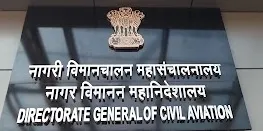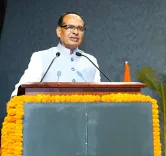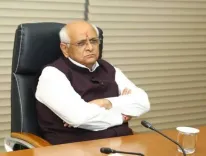What Flaws Did DGCA Discover in Domestic Airline Operations?

Synopsis
Key Takeaways
- DGCA identifies safety flaws in domestic airlines.
- Seven-day deadline imposed for corrective actions.
- Recurring defects signal inadequate monitoring.
- Focus on enhancing safety after recent tragedies.
- Comprehensive audits are crucial for aviation safety.
New Delhi, June 24 (NationPress) The Directorate General of Civil Aviation (DGCA) announced on Tuesday that it has identified multiple flaws in domestic airline operations across certain airports, where "reported defects" have reappeared on aircraft following routine inspections.
This aviation regulatory body, responding to concerns raised after the tragic Air India crash in Ahmedabad, has mandated a new set of Comprehensive Special Audits of airports to improve safety standards. Their findings revealed numerous instances where recurring defects indicated insufficient monitoring and ineffective rectification measures.
During the inspections, various safety violations and lapses were detected. Actions are being taken, particularly concerning line maintenance stores where tool control protocols were not adhered to, according to the regulator's statement.
Moreover, it was discovered that maintenance protocols were not followed, leading to safety precautions being overlooked by aircraft maintenance engineers (AME) as outlined in the Aircraft Maintenance Manual (AMM).
One airline was compelled to cancel a domestic flight due to safety concerns. The DGCA stated, "A domestic flight of a scheduled carrier was delayed due to worn tyres and was only cleared after the necessary corrective actions were completed."
The civil aviation authority has granted airport operators in India a seven-day deadline to rectify significant safety issues identified during inspections at major airports.
In light of the recent Air India plane crash, the agency has initiated a thorough assessment of the aviation landscape to bolster safety protocols within the sector.
"All findings observed during the surveillance have been communicated to the appropriate operators for immediate corrective actions within a week. This ongoing comprehensive surveillance will continue to identify potential hazards within the system," the regulator noted.
Two teams, led by the Joint Director General, conducted extensive surveillance during the night and early morning at major airports, including those in Delhi and Mumbai.
The DGCA has also launched an in-depth audit of Air India’s primary base in Gurugram, intensifying oversight of the airline following the tragic crash of a London-bound Boeing 787-8 Dreamliner earlier this month, which resulted in nearly 270 fatalities including 241 passengers and crew members. An eight-member DGCA team is currently conducting the audit at the Tata Group-owned airline’s hub.








